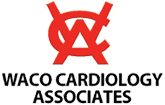Atherosclerosis is a disease that affects the arteries. It is the primary cause of angina, heart attack, sudden death and stroke. This disease is the cause of death world-wide more than any other single disease. The term “atherosclerosis” refers to the buildup of fatty substances, called plaque, on the artery walls. Plaque forms when the endothelium, the internal lining of the artery, is damaged. This damage allows for the deposit of cholesterol and other fatty substances in the blood on the artery wall. Over time, these deposits thicken the artery walls and cause the opening of the artery, called the lumen, to become narrower. When this occurs in the arteries taking oxygenated blood to the heart, it is called coronary artery disease. If the plaques become large enough, they can block the flow of blood to that part of the body. Angina occurs when the heart cannot get enough oxygen-rich blood through plaque-clogged arteries. Plaque is generally fragile and is at risk of detaching or breaking. If this happens, a blood clot can form, which can block the flow of blood through the artery. If the artery takes blood to the heart muscle, then a heart attack is caused by the clot forming. If the artery takes blood to a part of the brain, then a stroke is caused by the formation of the clot. Atherosclerosis is a disease that tends to progress slowly and can even begin in childhood and continue progressing throughout life. In people with risk factors for atherosclerosis, the disease can progress quickly. These risk factors are believed to damage to the artery wall. Being male and having a family history of premature cardiovascular disease increases the risk of atherosclerosis. These risk factors cannot be controlled. Other risk factors could be treated. These include hypertension (high blood pressure), high cholesterol, smoking, diabetes, obesity and a sedentary lifestyle. Research shows that modifying these risk factors can significantly decrease the risk of heart attack and stroke. Your cardiologist may tell you to exercise more regularly, modify your diet and change certain habits in order to lower the risk factors. If lifestyle changes do not improve the risk factors, your cardiologist may prescribe you medications to lower blood cholesterol, reduce blood pressure and control diabetes. Patients who smoke must stop. Ask the cardiologist for help if you do not succeed in quitting smoking.
Caring for the hearts of Central Texas Since 1971
(254) 399-5400

